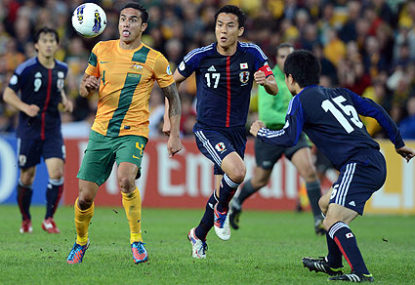Do Australia’s professional sporting teams have an obligation to entertain? Is it incumbent upon them not just to play hard, but to put on a ‘show’ as well?
The easy answer is ‘no’. They have an obligation to win, as ultimately, that is how they will be judged.
However, that’s too simplistic and idealistic an answer, because the reality is that professional sports are dependent upon revenue if they wish to remain professional.
Said revenue – either directly or indirectly – is generated by the fans. It’s raised via gate-takings, broadcast rights, merchandise and sponsorships, all of which can be attributed to the public and their level of interest in the particular sport. And make no mistake, there is plenty of competition for their interest.
There are a number of professional sporting competitions in this country, all scrambling to attract as many fans – and thereby revenue – as possible.
With such a cluttered and competitive sporting landscape, the individual sports and their teams therefore need to make their ‘product’ as attractive as possible, so as to gain and keep the interest of the public.
Winning obviously helps, but it’s very hard to actually guarantee success. It’s not exactly a unique strategy either; everybody is trying to win. And simple mathematics will highlight the fact that not everyone can do it anyway.
That’s why the entertainment factor comes into play.
Sport is entertainment. It always has been, right back to the gladiator days. But as professionalism has crept into sport, along with an increase in the actual number of sports, it becomes even more important that it is entertaining.
When you ask fans to pay to watch a sport, it becomes a transaction. The ‘fan’ makes the subtle shift to ‘customer’, and with that financial agreement comes an obligation to provide value for money.
Additionally, the very second you ask fans to pay to watch sport, you enter a market that is extremely competitive: the one asking for their wallet.
That places sports against a vast number of competitors: cinemas, the pub, gaming consoles, restaurants, theme parks, Foxtel, national parks, holidays, the theatre, museums, shopping, and the list goes on.
With such healthy competition for their dollar, suddenly the fan is a discerning one. So when it comes to watching sport, they don’t want entertainment, they demand it. And they’ll vote with their feet.
Therefore, teams may not have an obligation to entertain, but it’s most certainly in their best interests to entertain.
That’s why many sports and competitions have attempted to ensure the entire experience is as entertaining as possible for the paying public.
Cheerleaders, bands, fireworks, mascots, dancers, face painting, Mexican waves, t-shirt cannons, food stalls, bars, celebrity fans, pre-game and halftime entertainment, video highlights, trivia questions, dress-ups, comedians, chants, crowd announcers, etc.
All are designed to maxmise the fan’s enjoyment, and provide bang for their buck.
Yet the sport itself will always remain the ‘main show’ and spectacle, and thus remains the part that fans really want to be entertaining.
In many cases, it’s not just about being entertaining, it’s about being true to the Australian way of approaching sport. It’s a cliché – but it doesn’t make it any less true – that Aussies like to see their teams ‘have a crack’, rather than being cautious or defensive.
They’re not shy about voicing their opinions either.
The Socceroos under Pim Verbeek were lambasted for not playing the attacking football for which the team had become renowned.
For the last couple of years, the Wallabies have been derided for not playing the traditional Australian style of free flowing, running rugby.
You often hear people complain that Ed Cowan is too slow when he bats.
Australian sports fans want to be entertained.
It’s a fine line though, because Australian’s are very a tough crowd. They expect their teams to play a certain way, but they also expect to win. In fact, I don’t think it’s an unfair statement to proclaim that they want both equally.
The St George Illawarra Dragons claimed the 2010 NRL Premiership, much to the chagrin of fans who hated their methodical, high percentage, kick-heavy style of play.
The Sydney Swans won the 2005 Premiership, yet even AFL CEO Andrew Demetriou labelled them as “unattractive” and “ugly”.
So winning isn’t enough to please everybody. Yet neither is just being entertaining. You need to be both.
The Steve Waugh-led Test team, the 2005 Wests Tigers, and the 2011 Queensland Reds are three examples of teams that perfected the magic formula of winning and being entertaining.
It’s far easier said than done, but in Australia, that’s the harsh expectation.
An obligation to be entertaining? No.
A need to be entertaining? Yes.





























































































